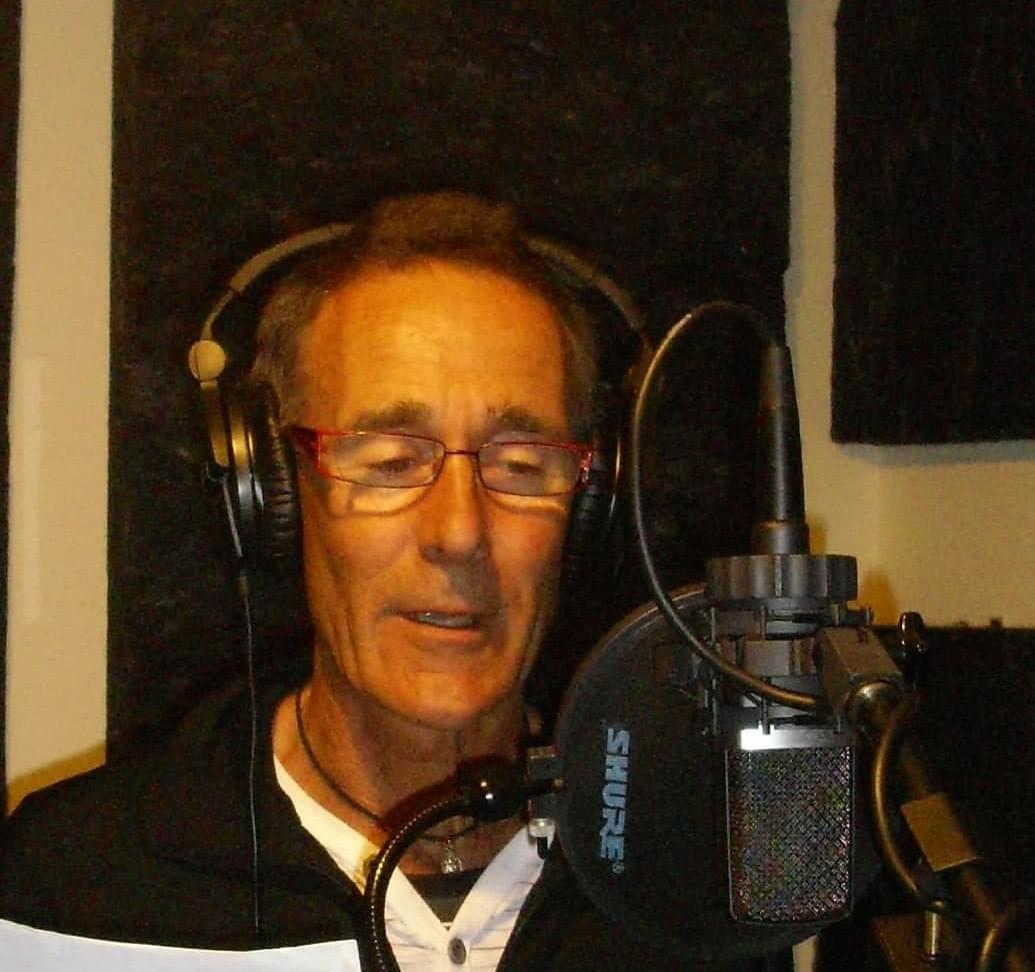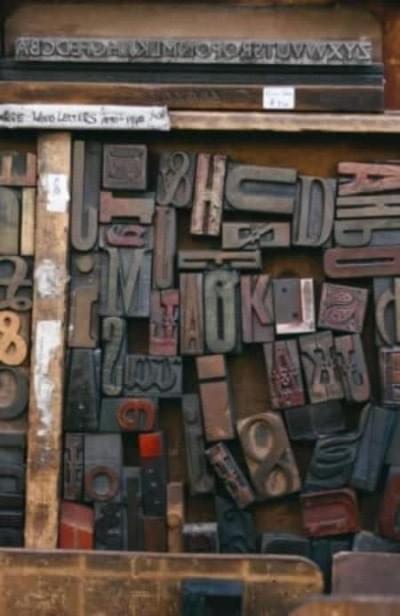

Dr Alan Hancock
Dr Alan Hancock
writer, educator, theatre director: consultant in creativity and communication
writer, educator, theatre director: consultant in creativity and communication

Lives in Perth, Australia. Writes everywhere.
At seventeen I wrote an article about the floods that covered Mid Wales and the border country around Chester (UK), my home town. It was published in a national magazine: I got my name on the front cover, a cheque for three pounds, and my first taste for the writing life. I’ve been writing ever since.
I’ve always loved words and stories. Now I use story-telling skills in all my work, whether it's writing for the page, the stage, or the voice.
I also run courses and workshops, for business, government and community groups. I regularly lead theatre-making projects.
My scripts have been produced by the BBC and ABC (in Australia), while my short fiction and articles are published in a range of magazines and journals. I teach voice skills, perform my own spoken voice material, and work in universities as guest lecturer and theatre director.
The more I have found out about the way we humans use language, the more interested I have become. As part of my study for an MA in Applied Linguistics I researched language-learning games. I followed this up with a PhD on collaborative creativity. All this has inspired and informed my work with organisations on communications skills, collaboration, innovation and creative practice.
- The BlogThoughts, musings, and ruminations.April 23, 20201. “We read to know we are not alone.” ― C.S. Lewis, author 2. “You can always edit a bad page. You can’t edit a blank page.” ― Jodi Picoult 3. “Don’t tell me the moon is shining; show me the glint of light on broken glass.” ― Anton Chekhov 4. "If you don't have time to read, you don't have the...October 6, 2018Why plotting a story won’t help you write it Alan Hancock © 2014 If you want to write a story that works you can forget about plot. Plot is retrospective: it’s a great tool for analysing a story once it’s finished. But it won’t help you if you’re setting out to create one. Why? Because the...October 3, 2018Plain English – what it is and why you should use it © Dr Alan Hancock 2018 Plain English is a writing style that puts the reader first. It is clear, concise and structured for readability. So if you think that you need to use fancy words and complex structures in your workplace writing, think...
THINGS I DO
“A human being is a story-telling machine.” Paul Brooks

WRITING
Writing for the web, the page, the voice and theatre
Whatever you need to get across, I can show you how to use words to engage and persuade, to inform and educate.
Once there was a writer who worked in an office. Her job was to write things and give presentations - but she did not feel inspired. Her output was bland and boring – she couldn’t help using words like ‘evolving’, ‘going forward’, ‘facilitation’ and ‘transformation’ in everything she did. She dumped lots of statistics and information onto her readers and listeners, who quickly lost interest. Then one day she decided to tell a story. And everything changed.
My scripts have been produced by the BBC and ABC, while my short fiction has won prizes and been published world-wide. I have helped many organisations create engaging website content.

Training - the three Cs
Workshops and courses in communication skills, creativity, and collaboration
These are the new essentials for success at work and in study. And I can help you transform and energise your work or study by applying a range of skills from the performing arts. Whether you want to do well at an interview, prepare a great talk, or create a slide presentation that stands out from the rest, these are the skills that you need.
Over the last thirty years I have led programs, courses and workshops at universities, and for business and government. I have a wide experience of using theatre and creative writing processes in education and training.

Theatre-making
Collaborative devising and directing for the stage.
Whether it's community theatre, applied impro in professional training, or story-telling performance, I can work with you on your project.
I have managed over a dozen theatre productions from first idea to public performance. Shows I directed have toured the UK and Australia, been presented at festivals, and entertained audiences at art galleries, museums, schools, universities and community centres.

Public speaking
I am an experienced public speaker and a regular performer on the WA story-telling circuit.
My talks, seminars and presentations are all informed by my knowledge of performance skills: they are lively, interactive and engaging.

Creativity workshop
Creativity at Work:
One day workshop
Government and business are changing rapidly, and these changes require us all to adapt how we approach our work. It is no longer enough to rely on knowledge. We need creative thinking to solve new and unexpected problems and resolve emerging issues.
There is no simple formula for generating original ideas and applying them in the workplace. But there are tried and tested techniques to help create the conditions for innovation, both in individuals and groups.
In this one day course we’ll put into practice some of these techniques, look at the science that informs them, and discuss how to apply them to the work of large organisations. On the way we’ll demystify creativity and learn how anyone can become creative.
Finally, and by no means least importantly – people enjoy being creative. When we are being creative at work we are more engaged with what we are doing; that benefits everybody. This workshop will be lively, and enjoyable.

The Power of the Story in Workplace Communication
The Power of the Story in Workplace Communication:
One day workshop
This workshop is for anyone who wants to put new energy into their workplace communication. It is for those who want to learn how to harness the full power of the written and spoken word in order to inform, explain and persuade. Because good story-telling is at the heart of all effective communication.
So what makes a story? What are the commonalities of structure that link ‘The Hobbit’, ‘Romeo and Juliet’ and ‘The Da Vinci Code’? They are all great pieces of writing; everyone can learn from them how to engage and communicate with a reader or listener.
In this workshop you will get an insight into how stories create meaning. Then you’ll learn how to apply this understanding to your own work. And in the process you may well find new energy and inspiration.

Collaboration and Leadership: ideas into practice
Collaboration and Leadership: ideas into practice
One day workshop
Content:
Lessons from the performing arts on collaboration
The pleasures of collaboration – how and why people can enjoy team-work.
Using Emergence as a model - how to allow process and structure to emerge.
What leaders need to do - create conditions for collaboration by providing structure and limits.
Assessing the pros and cons of collaboration - when it is and is not appropriate.
Commitment - the importance of getting people to commit to group process and aims.
The perfect brainstorm – and why traditional brainstorms don’t work.
Why it’s okay to fail - 3M Post-it notes, Google spectacles, and other great failures.
‘Let’s take the first step and get lost. Because if you never get lost you might never get found.’
The power of ignorance - question everything; accept all questions
Convergent and divergent thinking - knowing which to use.
Collaborative energy and innovation - why 2 + 2 = 5.
Activities - individual, pairs, small and large groups.

Professional writing workshops: the essentials
Writing Plain English
Half-day workshop
Whatever you are writing, you need to make sure you put your reader first. This workshop shows you how to write the kind of English that communicates effectively with a reader, that is clear and concise. You will learn how to streamline your written work by following some straightforward rules, and how to structure a piece of writing for maximum readability and impact. The workshop is lively, interactive, and stimulating.
Grammar and Punctuation Essentials
Half-day workshop
What are the principles that underlie clear and effective written English? This half-day interactive course shows you how to apply the basic rules of grammar and punctuation to improve your writing. It also teaches you how to avoid the most common errors. The notes for the course include summary sheets that you can use at work and simple approaches to editing your written work.
Shop Now
Check out our products.
My work
Organisations I've worked with include:
Edith Cowan University
Curtin University
Murdoch University
Notre Dame University
Institute of Public Administration Australia
Office of the Public Sector Commissioner
Landgate
Lotterywest
WA Water Department;
WA Office of the Auditor General
WA Health Department
WA Department of Treasury
WA Department of Fire and Emergency Services
City of Stirling, City of Belmont, City of Vincent, City of Wanneroo
Shipwreck: a devised theatre project
I set up and ran this production at the WA Maritime Museum in Fremantle. The company were a student group from Edith Cowan University, who performed the show to the public at the Fremantle Heritage Festival over three nights.
Alan talks about his freeflow approach to writing.
Alan explains how freeflow writing works - the ideas and the practice. Structure and content emerge as you write: you find out what you mean through writing.
TESTIMONIALS
WHAT CLIENTS SAY
Joanne Blayney
Program Development Manager
Institute of Public Administration Australia, Western Australia
Alan Hancock has been a regular presenter on the IPAA WA program. His programs are always delivered in a professional manner and he receives fantastic feedback from participants. If you’re looking for someone to assist you, or your colleagues, with grammar and writing skills, Alan has the knowledge and the skill to deliver.
Jane Tillson
Arts/Cultural Development Officer City of Mandurah
I am delighted to provide a testimonial for Alan Hancock.
You have always been very professional to work with. You have delivered your workshops in a calm, informed and authoritative manner and have held the attention of the participants throughout. Your vast knowledge of the writing genre and experience as a lecturer has helped you hone your delivery and content to produce maximum value for the workshops you have run in our community. You are able to adapt your workshops to suit a particular focus. We have had nothing but positive feedback from your workshops and the repeat registration of the participants is testimony to your work. I would have no hesitation in recommending you as a writing workshop facilitator.
Marnie Wallace
Professional Development Convenor, Australian Institute of Office Professional, WA Division
Dr Alan Hancock is an entertaining and enjoyable speaker, providing valuable and memorable tips to improve writing skills.
As a keynote speaker at the Australian Institute of Office Profesionals (AIOP) State Seminar, Dr Alan Hancock presented an interactive session 'Freeing the writer within: making words work'.
Dr Alan Hancock s informative was very well received.
The WA division of AIOP looks forward to Dr Alan Hancock presenting his Freeflow writing technique to office professionals at future AIOP events.
Larry Kirk
Author and participant at one of Alan's public 'Freeflow writing' workshops
I would say that your creative writing sessions were a window to the creative mind. Apart from being a very enjoyable, thoughtful and stimulating way to improve one's creative writing and public reading skills, they also loosened up the whole mind. They got the self-conscious, conscious mind out of the way and freed up the imagination, to spill out all the secrets it had locked away and hadn't been able to say till then. Freed up things I didn't even know existed and let them out as a coherent stream of thought and words. And as a person who spends half his life sweating over stilted, dull, repetitive reports of facts and events that would bore the average accountant into a coma, it was a breath of fresh air to rediscover writing as a pleasure again. It really does work, your freeflow writing course. It discovers creative writing skills where none existed before, inspires confidence and ability, and is a most enjoyable workout for the mind: a regular gym session for the creative muscles with which one writes.
Contact me
Copyright 2018








